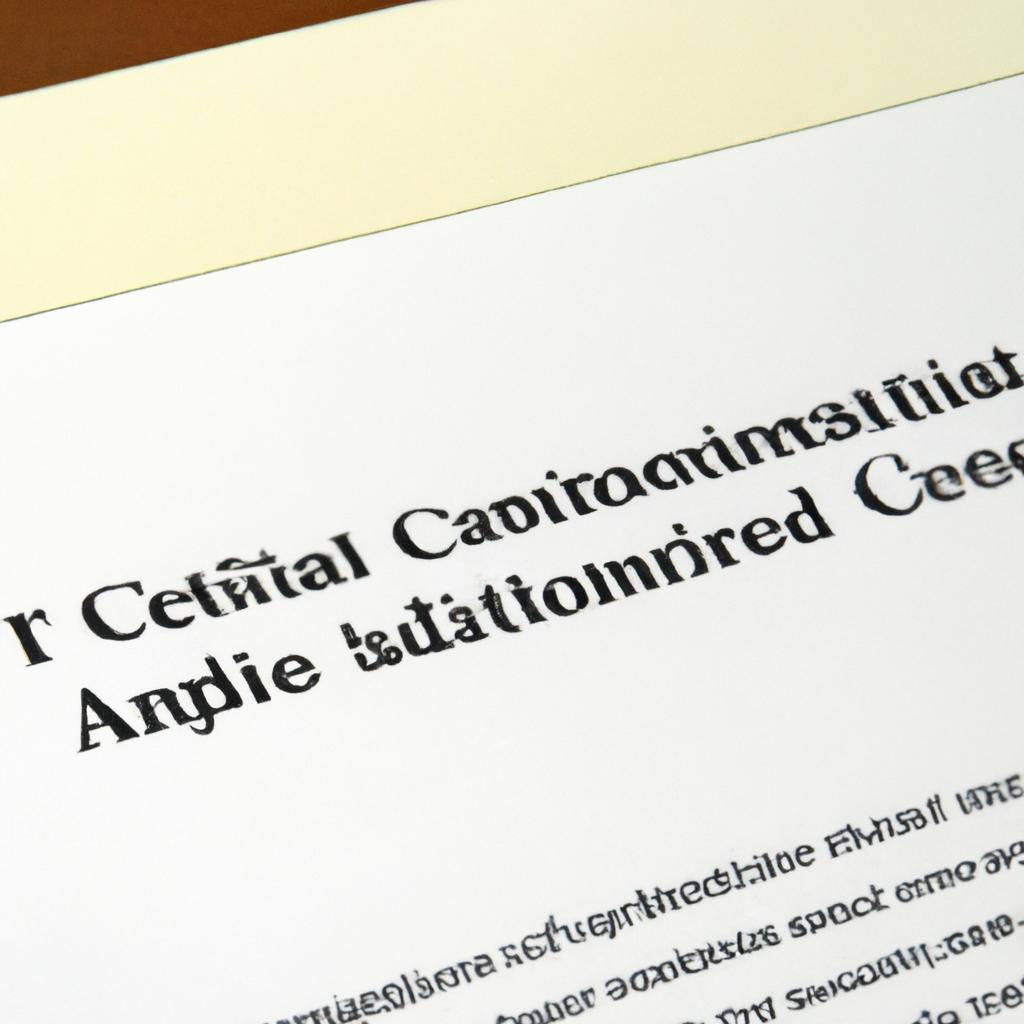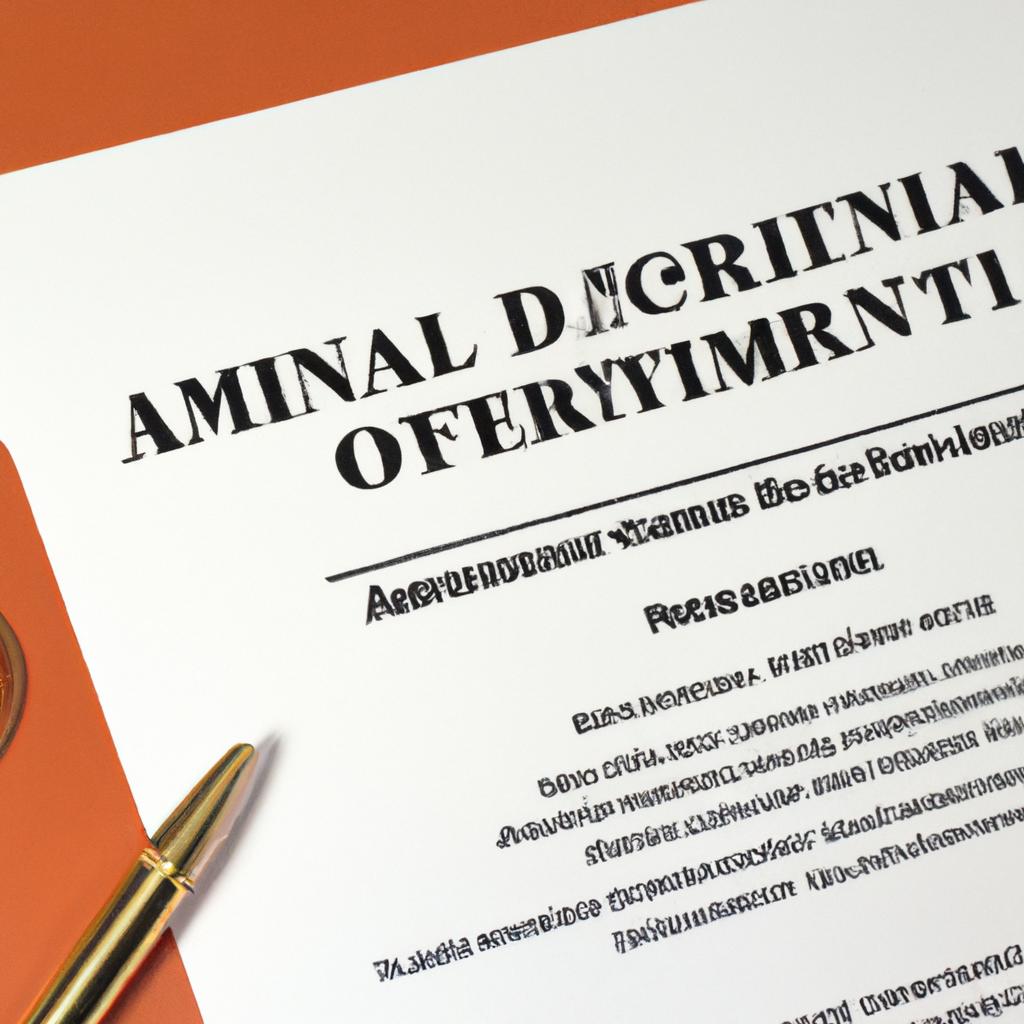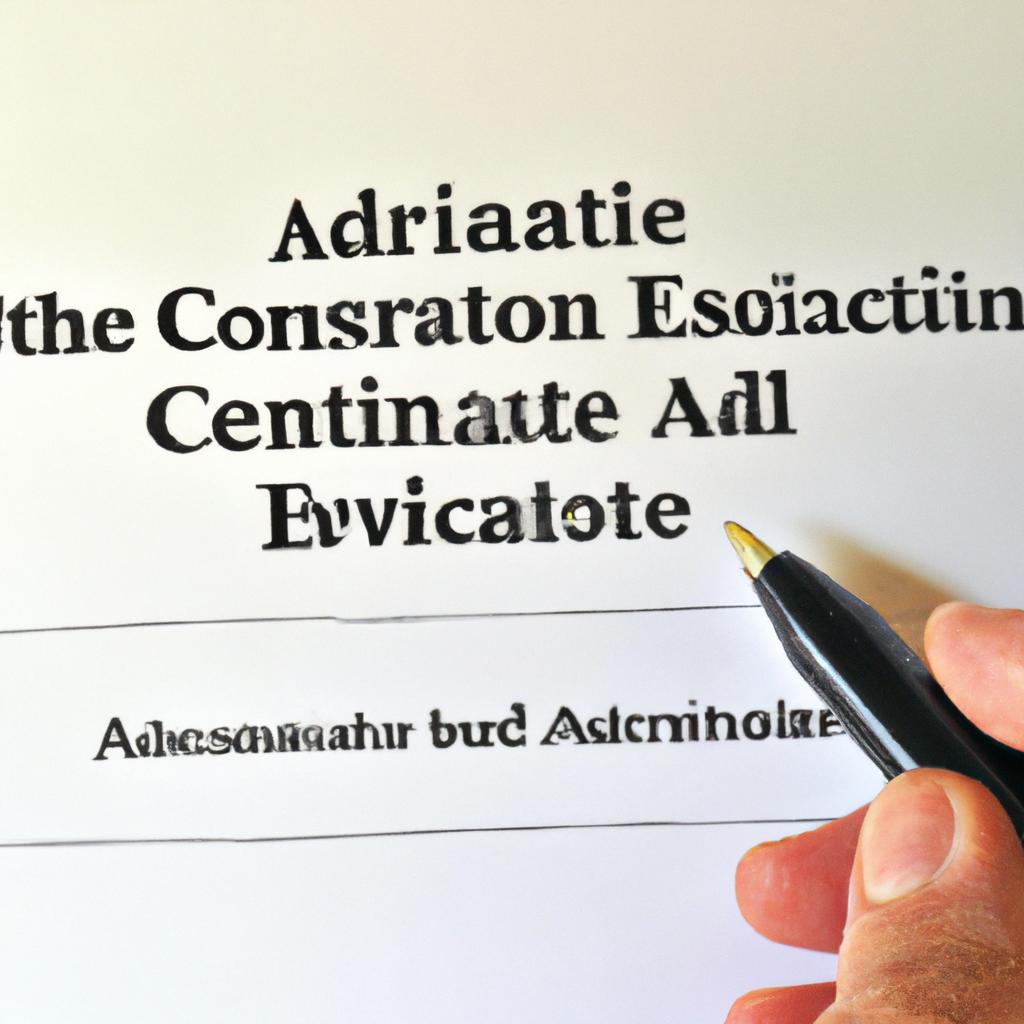As seasoned legal professionals at Morgan Legal Group in the bustling city of New York, we understand the intricate and often complex nature of estate planning and administration. Among the vital documents necessary in ensuring a seamless transfer of assets and properties is the certificate of administration. In this article, we delve into the essential details of this crucial legal instrument, shedding light on its significance in the probate process. Join us as we navigate the nuances of estate law and unravel the intricacies of the certificate of administration.
Understanding the Purpose of a Certificate of Administration
In the realm of estate planning and probate law, a Certificate of Administration serves as an important legal document that designates an individual as the administrator of an estate. This certificate provides the administrator with the authority to manage and distribute the assets of the deceased individual in accordance with the laws of the state.
One of the primary purposes of a Certificate of Administration is to ensure that the estate is properly administered and that the assets are distributed to the rightful heirs. This document also serves as proof of the administrator’s legal authority to act on behalf of the estate, allowing them to carry out their duties effectively and in compliance with the law.

Key Differences between a Certificate of Administration and Letters Testamentary
When it comes to handling the affairs of a deceased individual, understanding the difference between a Certificate of Administration and Letters Testamentary is crucial. While both documents grant authority to manage an estate, there are key distinctions that must be acknowledged.
One significant difference is the process by which each document is obtained. A Certificate of Administration is typically issued when an individual dies without a valid will, while Letters Testamentary are granted to the executor named in a valid will. Understanding this distinction is essential in determining the appropriate course of action in administering the estate.

How to Obtain a Certificate of Administration in New York
To obtain a Certificate of Administration in New York, there are specific steps that must be followed to ensure the process is completed accurately and efficiently. First, it is important to gather all necessary documentation, including the decedent’s death certificate, their original Will (if applicable), and any other relevant paperwork. These documents will be crucial in proving your authority to act as the administrator of the estate.
Next, you will need to submit a petition to the Surrogate’s Court in the county where the decedent resided at the time of their death. This petition should outline your relationship to the deceased, your reason for seeking administration, and any other pertinent information. It is important to follow all court rules and procedures to ensure your petition is accepted. Once approved, the court will issue a Certificate of Administration, granting you the legal authority to manage the estate and distribute assets accordingly. Remember, seeking legal advice from a qualified attorney can help navigate this process smoothly and effectively.
| Documents needed | Location | Submission |
|---|---|---|
| Death certificate | Decedent’s county of residence | Submit to the Surrogate’s Court |
| Original Will | Decedent’s county of residence | Submit to the Surrogate’s Court |
| Petition | Decedent’s county of residence | Submit to the Surrogate’s Court |

Navigating the Complexities of Administering an Estate Without a Valid Certificate of Administration
Administering an estate without a valid certificate of administration can be a daunting task, given the complexities involved in the process. It is crucial to understand the legal requirements and procedures to avoid complications along the way.
Without a valid certificate of administration, individuals may encounter challenges such as:
- Difficulty in accessing and distributing the deceased’s assets.
- Legal disputes among beneficiaries.
- Possible financial liabilities for mishandling estate affairs.
Q&A
Q: What is a certificate of administration?
A: A certificate of administration is a legal document issued by a court that grants the authority to manage and distribute the assets of a deceased person’s estate.
Q: Who can apply for a certificate of administration?
A: Typically, the next of kin or a close relative of the deceased person can apply for a certificate of administration. If there is no eligible family member, a creditor or other interested party may also apply.
Q: What is the purpose of a certificate of administration?
A: The main purpose of a certificate of administration is to appoint someone to handle the distribution of the deceased person’s assets according to their will or the laws of intestacy.
Q: What are the requirements for obtaining a certificate of administration?
A: The requirements vary depending on the jurisdiction, but generally include providing proof of death, a list of the deceased person’s assets and liabilities, and information on any potential beneficiaries.
Q: How long does it take to obtain a certificate of administration?
A: The time it takes to obtain a certificate of administration can vary depending on the complexity of the estate and any potential disputes among heirs. On average, it can take anywhere from a few weeks to several months.
Q: Can a certificate of administration be challenged?
A: Yes, a certificate of administration can be challenged in court if there are concerns about the validity of the document or if there are disputes among potential heirs. It is important to seek legal advice if you have concerns about a certificate of administration.
Remember, it is always best to consult with a legal professional for specific guidance on obtaining a certificate of administration in your jurisdiction.
The Conclusion
In conclusion, the certificate of administration is a vital legal document that plays a crucial role in ensuring the orderly distribution of a deceased person’s estate. By appointing a trusted individual to administer the estate, the certificate of administration provides peace of mind and clarity during a difficult time. If you find yourself in need of this important document, be sure to consult with a qualified legal professional to guide you through the process. With the certificate of administration in hand, you can proceed with confidence knowing that your loved one’s affairs are being handled with care and efficiency.





